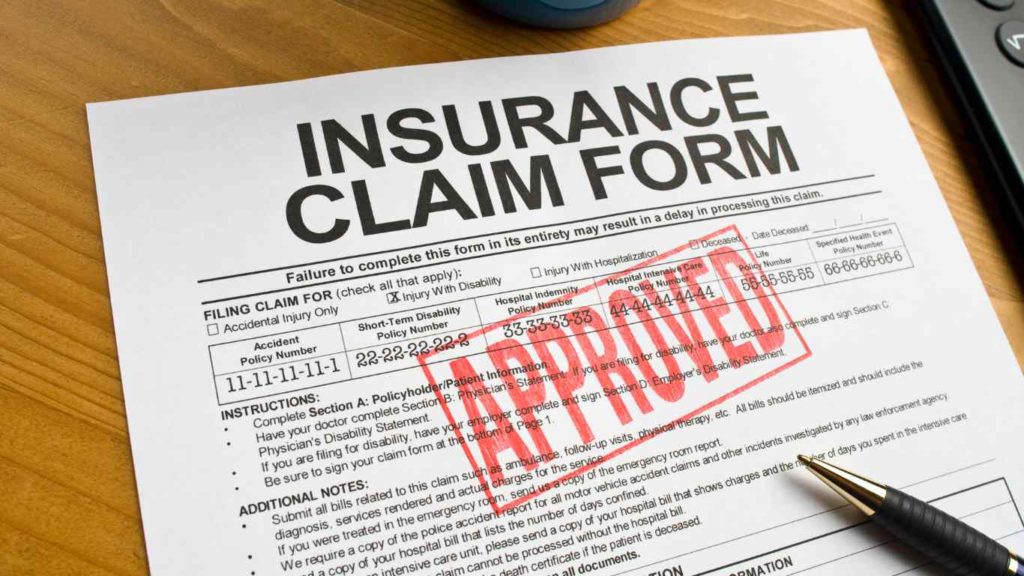Facing an insurance claim filed against you can be a daunting experience. Especially if you’re unfamiliar with the legal process and your rights. Whether you’re a homeowner, a driver involved in a car accident, or a business owner facing liability claims. Understanding what to expect when facing an insurance claim can help alleviate some of the stress and uncertainty. Keep reading as we look into the various aspects of facing an insurance claim, from the initial notification to the resolution of the claim. Whether you’re in California or elsewhere, knowing what to expect can empower you to navigate the situation confidently and effectively.
Receiving Notice of the Insurance Claim
The first step in facing an insurance claim is often receiving formal notification from the claimant or their legal representative. This notice typically outlines the details of the claim. Typically this will include the nature of the alleged injury or damages, the amount of compensation sought, and any supporting documentation. It’s essential to review this notice carefully and take prompt action to address the claim.
Gathering Documentation and Evidence
Once you’ve been notified of the claim, it’s crucial to gather all relevant documentation and evidence to support your defense. This may include incident reports, photographs of the scene, witness statements, and any relevant insurance policies. Thorough documentation can strengthen your case and help you refute the claimant’s allegations effectively.
Notifying Your Insurance Company
Upon receiving notice of the claim, it’s imperative to notify your insurance company promptly. Your insurer will guide you through the claims process and provide you with the necessary support and resources to defend against the claim. Be sure to provide your insurer with all relevant documentation and cooperate fully throughout the claims process.
Understanding Your Coverage
Before responding to the claim, it’s essential to understand the extent of your insurance coverage and any limitations or exclusions that may apply. Review your insurance policy carefully. Including, paying close attention to coverage limits, deductibles, and any applicable endorsements. Understanding your coverage can help you make informed decisions about how to proceed with the claim.
Evaluating the Merits of the Claim
As you prepare to respond to the insurance claim filed against you, a critical step is to carefully evaluate the merits of the claim. This process involves a thorough examination of the evidence presented by the claimant, as well as an assessment of any potential defenses you may have to refute their allegations.
Reviewing the Evidence Provided By The Claimant
Begin by reviewing all relevant documentation related to the claim. This may include incident reports, witness statements, photographs of the scene, and any other evidence provided by the claimant. Pay close attention to the details presented and assess their credibility and relevance to the case.
Assessing Your Defenses
Next, consider the defenses you may have to counter the claimant’s allegations. Depending on the circumstances surrounding the incident, potential defenses could include contributory negligence, assumption of risk, lack of causation, or even disputing the extent of damages claimed. Evaluate the strength of each defense concerning the evidence presented and consider how best to assert them in your response.
Weighing Settlement Options
In many cases, insurance claims are resolved through negotiation between the parties involved. In some cases, it may be beneficial to explore settlement options as an alternative to litigation. Before making any decisions, carefully weigh the pros and cons of settling the claim versus pursuing litigation. Consider factors such as the potential costs and time involved in litigation, as well as the likelihood of success based on the strength of your defenses. Your attorney can help you evaluate settlement offers and negotiate terms that are fair and reasonable.
Preparing Your Response
Armed with a thorough understanding of the merits of the claim and your defenses, it’s time to prepare your response. This may involve drafting a formal written response to the claim, outlining your position, and providing supporting evidence or documentation to substantiate your defenses. Ensure that your response is clear, concise, and accurately reflects your legal position.
Litigation and Legal Representation
When facing an insurance claim filed against you, particularly if negotiations fail to resolve, litigation may become necessary. Litigation involves the formal process of resolving disputes through the court system, and having competent legal representation is essential to navigate this complex process effectively.
Consulting with Legal Counsel
Facing an insurance claim can be a complex and challenging experience. Particularly if you’re unfamiliar with the legal process. If you’re unsure about the strength of your case or need guidance on how to proceed, it’s advisable to seek assistance from a qualified attorney. A personal injury lawyer with experience in handling insurance claims is invaluable. We can provide insight and strategic advice tailored to your specific situation. We can review the evidence, assess the legal merits of the claim, and advise you on the most effective course of action to defend against the claim.
Contact a Westlake Village Personal Injury Attorney Today
Whether you’ve been involved in a car accident, slip and fall incident, or any other personal injury scenario we are here to help. Our attorneys have the expertise and resources necessary to guide you through the legal process effectively. Don’t navigate the complexities of a personal injury claim alone. Reach out to the Westlake Village personal injury lawyers at Vititoe Law Group today for a complimentary consultation and let us defend you.








